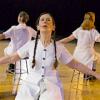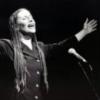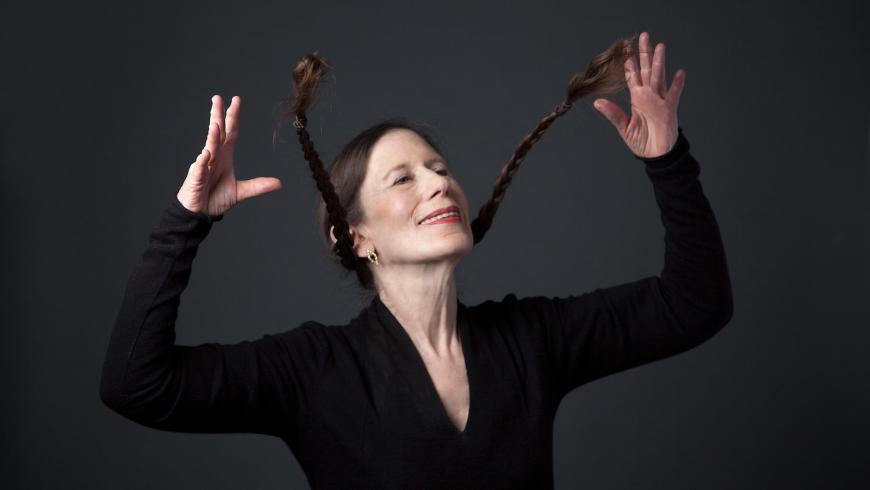
Singer, composer, director, and choreographer Meredith Monk, whose concert Indra’s Net premieres at Mills College Nov. 12 and 13, feels a little like she’s in a trance.
“I’m in kind of a dream,” she said. “I’m running around and everything, but I’ve been working so long on this piece it’s hard to believe it will actually happen.”
Indra’s Net, the third in Monk’s trilogy about our relationship to the natural world (following On Behalf of Nature, a plea for ecological awareness, and Cellular Songs, about the basic structure of living things) was set to premiere in November 2020. It’s based on the Buddhist/Hindu story about a king who stretches a net across the universe with a jewel at each intersection, unique and reflecting the others.
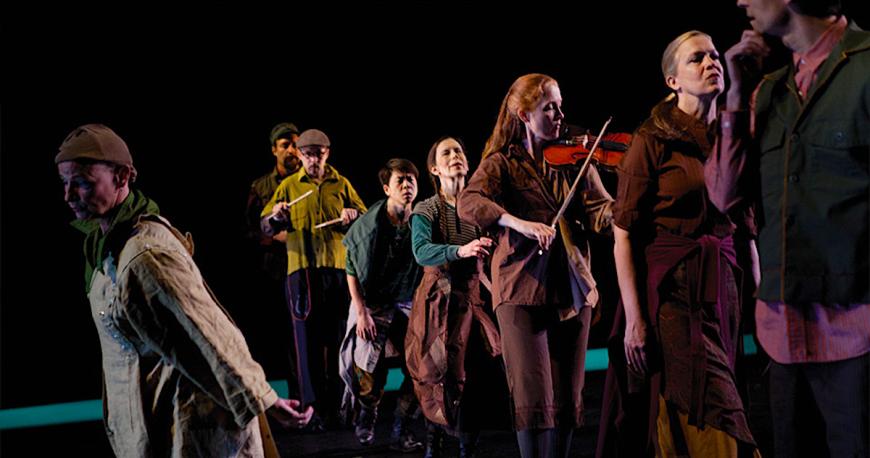
Monk calls it a teaching story about the basic principles of existence, and how every living thing connects to others, which the pandemic underscored.
“That interdependence is highlighted here,” she said. “And, oh my God, here we are, and the entire world is experiencing this. What we do affects everyone in one way or another. I wish our leaders knew about that.”
Monk, whose accolades include induction into the American Academy of Arts and Letters, a National Medal of Arts from President Barack Obama, and a MacArthur “genius” fellowship, as well as two Guggenheim fellowships, says in some ways, the pandemic freed her mind.
“Artists always have to tolerate hanging in the unknown, and with this I had all the rugs pulled out from under me,” she said. “Two videos, Anthem and Rotation, which I think of as connective tissue, I don’t know they would have happened without the pandemic.”
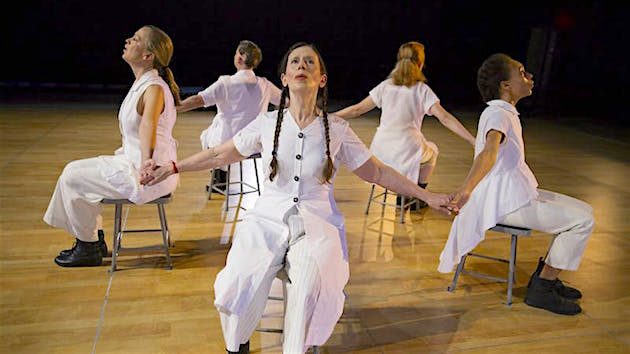
With the videos which will be shown on the Mills campus near the concert hall, Monk says she wanted to make something beautiful that people could see in years to come and not know they were made during a pandemic.
“It’s a meditative three-screen installation at Mills,” she said. “You can come in and go out before you come to the show, and it sort of quiets you down.”
Monk has spoken about some pieces she does having a “certain shine” and coming easily. Indra’s Net was one of those even with the inevitable delays.
“It felt like it was inevitable, and it just wanted to manifest,” she said. “Some others, I feel a little like a good shoemaker. Even though it’s taken so long, this seems like it needs to exist right now as a kind of antidote and something where you can feel the magic of life.”
But Indra’s Net isn’t all magic and comforting connections to others.
“I always think my work has the light and the dark as well as humor,” Monk said. “I like to make work that has a full palate of emotions.”
Monk says her entire process changed with this piece since she needed to rehearse with singers and instrumentalists separately online, and to take months to make the videos in a process almost like animation, with only one person in the room at a time. For Monk, creating like this underscored how nothing is given.
“I do think this almost two years has been an incredible lesson in patience and endurance and flexibility,” she said. “Our life is impermanent, and we put that in the back of our minds, but everything is impermanent, and everything is unknown. The pandemic brought that into the foreground.”
Monk thinks of herself as a sculptor in some ways, trying to pare down her performances to the core.
“What I want to see and hear is something that has luminosity and transparency. There are some very rich orchestral parts to the piece and some very spare a cappella parts that are intimate,” she said. “I’m trying to get down to a kind of essential quality and not have anything that’s extraneous. I never try to manipulate my audience in any way. It’s important that the work is honest.”

A practitioner of Buddhism, Monk says in a way she felt grateful to be in New York when it was hit so hard at the beginning of the pandemic.
“I know it sounds very strange, but the first noble truth in Buddhism is there is suffering, and you realize, ‘Wow, all over the world there’s this level of suffering of human beings,’” she said. “It was right there. It was profound in a lot of ways.”
As a performer, many people assumed she wasn’t able to work during the pandemic, but Monk says she’s never worked harder than she did during the last 20 months.
“I think it’s important as an older artist to encourage younger artists, so I did workshops [with] people from all over the world, vocal and physical workshops just as a way to let people feel their bodies,” she said. “I did a lot of interviews and lectures online during this time. I felt it was my responsibility.”
Monk says she wanted to inspire younger artists to keep pursuing performing.
“I’ve had a lifetime to have had the blessing to do what I’ve loved,” she said. “Young people now might be wondering, ‘Why would I practice? My voice won’t be in a place where it’s heard.’ I wanted to let them know, ‘No, this is a worthwhile thing, and you’ll find a way.’”




